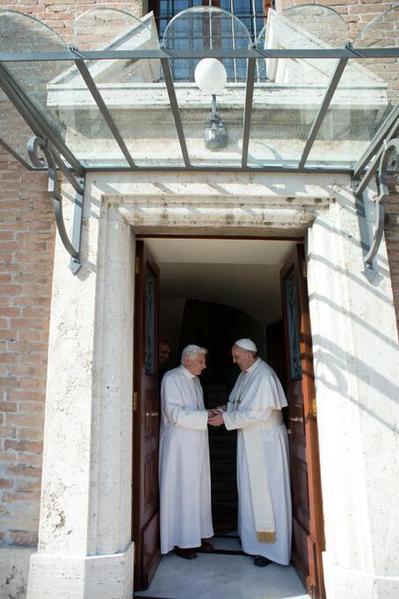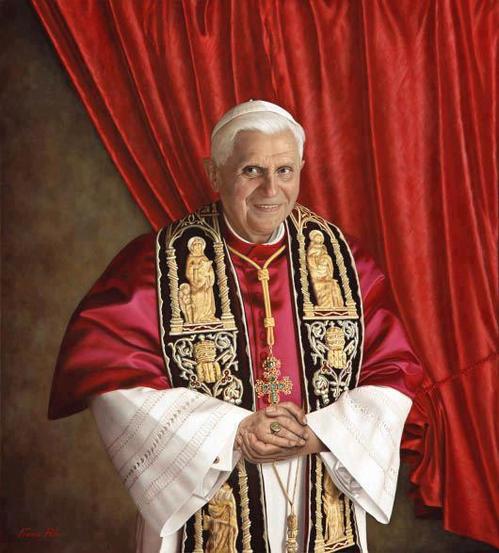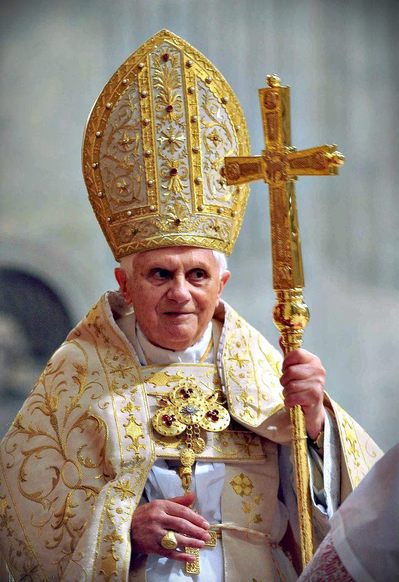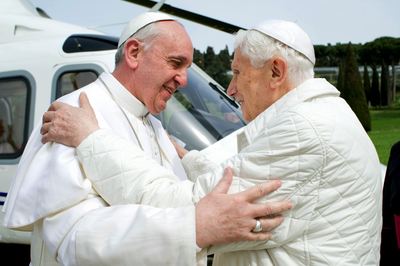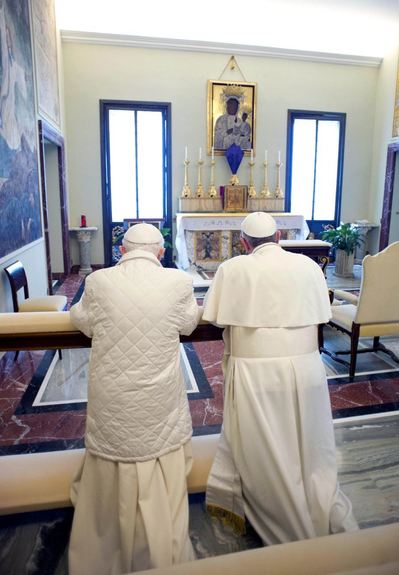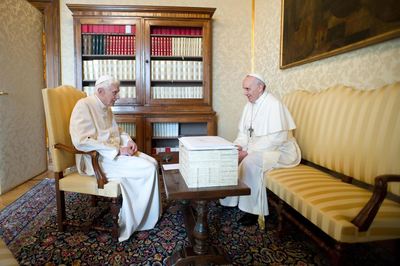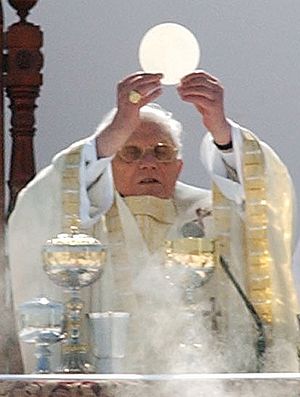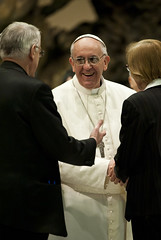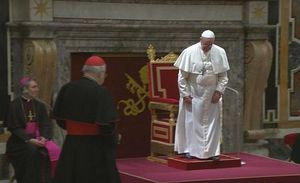Category: Pope Benedict XVI
Happy 8th anniversary of election to Benedict XVI, pope emeritus of Rome
Happy 86th birthday, Benedict, Bishop of Rome emeritus
Vatican: Benedict’s grave illness not true
According to Edward Pentin, the “Vatican denies Benedict XVI has serious illness.”
Pope Benedict’s health in decline?
The UK blogger on religion and culture Damian Thompson posted a piece today that potentially will get people excited: Pope Benedict XVI’s health is in the decline as he’s suffering from something very severe. Thompson is citing Paloma Gómez Borrero of El Mundo who wrote that Benedict’s health is noticeably diminished.
A papal brotherhood
What will Benedict XVIs legacy be in the years ahead?
The answer to this question will not be in its final form for a long time. The papacy only ended a few weeks ago. Historians will have to look at several things before they will be able to reflect back with greater precision that a video or a blog commentary can provide in 2013. There are several things that Pope Benedict’s 8 year reign that give good indicators as to what we engage with in the years ahead. Many more intelligent than I have thought this question through, but Father Robert Barron of the Archdiocese of Chicago has made a good first attempt when he posits that Benedict will be remembered for:
Continue reading What will Benedict XVIs legacy be in the years ahead?
A focus on mission, Pope Francis points to direction
I don’t think Pope Francis will be too different from the last several Roman Pontiffs. As bishop of Rome he will preach and teach, govern and sanctify.The Pope’s un-programatic homily is in fact programatic if you can read the details. In some ways Francis’s homily is an Aesopian creature.
Pope Francis speaks to the cardinals: the Paraclete is the supreme protagonist of every initiative; never give in to pessimism, to bitterness
The Church needs reform, as always, a personal conversion. Turning to Jesus Christ is an act of freedom. What baggage do we have that would prevent change, or hinder me from confessing and living differently as a Christian? Reform starts not with institutional works, but with oneself. Governance is not the only issue that we have to be vigilant of with this new papacy; conversion of life starts locally and spreads. As Francis said yesterday in his first Mass as the Bishop of Rome, we need to walk, to build, to confess with, for and by each and every person so that we see the glory of God. We need to untie the knots that were spoken of by Saint Ireneaus. All this talk of reform includes the Curia, it is not business as usual. The Pope will remind us and lead us by his own life. He now holds office as the Vicar of Christ. He has suffered much close to To that end, today Pope Francis spoke to the gathered cardinals in the Sala Clementina. His address follows.
This period of the Conclave has been filled with meaning not just for the College of Cardinals but also for all the faithful. During these days we have felt almost palpably the affection and solidarity of the universal Church, as well as the attention of many people who, even if not sharing our faith, look upon the Church and the Holy See with respect and admiration.
From every corner of the earth a heart-felt chorus of prayer was raised by Christian peoples for the new Pope, and my first encounter with the crowds filling St. Peter’s Square was an emotional one. With that eloquent image of a praying and joyful populace still fixed in my mind, I would like to manifest my sincere gratitude to the Bishops, priests, consecrated persons, young people, families, and to the aged for their spiritual closeness which is so touching and sincere.
Ratzinger on the Holy Spirit electing a pope
The well-known journalist John Allen quoted Pope Benedict about the role of the Holy Spirit’s work in the conclave:
Cardinal Joseph Ratzinger was asked on Bavarian television in 1997 if the Holy Spirit is responsible for who gets elected. This was his response:
I would not say so, in the sense that the Holy Spirit picks out the Pope. … I would say that the Spirit does not exactly take control of the affair, but rather like a good educator, as it were, leaves us much space, much freedom, without entirely abandoning us. Thus the Spirit’s role should be understood in a much more elastic sense, not that he dictates the candidate for whom one must vote. Probably the only assurance he offers is that the thing cannot be totally ruined.
Further:
There are too many contrary instances of popes the Holy Spirit obviously would not have picked!
